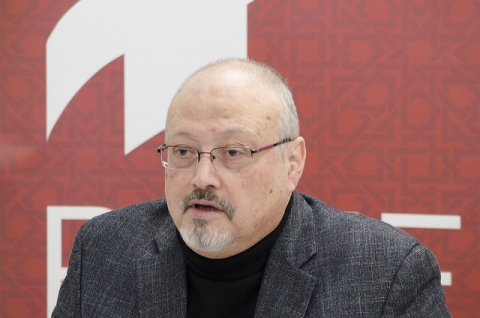
As the gruesome details of the murder of Washington Post journalist Jamal Khashoggi trickle out, I am horrified beyond words. That a critic of the Saudi regime could be brutally dismembered in a consulate in Istanbul seems too savage to contemplate in 2018.
The ensuing deceptions about what really happened to Khashoggi are extremely troubling. Much has been written about Khashoggi’s past work as an unofficial spokesman for the kingdom and as an outspoken critic of the Crown Prince Mohammed bin Salman.
There’s more to Khashoggi’s story. He was also a supporter of quality journalism. In 2005 - when the atmosphere was rigidly tense after 9/11 and the 2003 invasion of Iraq - news coverage in both the U.S. and the Arab world often resorted to stereotypes.
So the International Center for Journalists organized a three-day conference in Wisconsin to bring together nearly two dozen journalists from the U.S. and the Middle East to hold frank discussions on how to bridge the gap.
Khashoggi enthusiastically got behind the idea of getting journalists from both worlds in a room where they could come up with best practices on how to cover one another - at a time when it was easier to embrace cliches.
There were debates and heated discussions but all in the spirit of getting to know one another better. He also introduced ICFJ to the Saudi Committee for the Development of International Trade, which provided some funding.
The meeting was so productive that ICFJ published a guide, in English and Arabic, called “Fighting Words: How Arab and American Journalists Can Break Through to Better Coverage.” We sent it to hundreds of newsrooms and journalism schools throughout the U.S. and Middle East.
In my view, it still stands as the single best resource for covering the Arab world.
With Khashoggi’s brutal death, we not only lost a fine journalist but also a strong supporter of quality journalism. At a time when polarization is prevailing, we can take a page from his handbook and remember our common humanity.